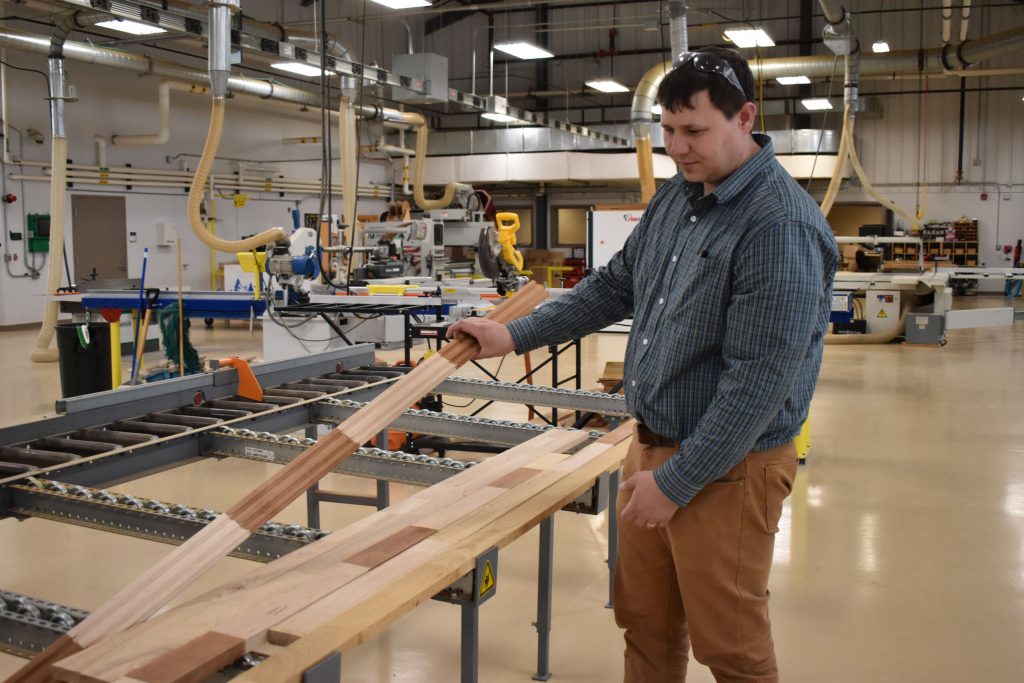Wisconsin Technical College System Gets Federal Funds After Freeze
The Department of Education froze and then released nearly $7 million in funding for adult education programs.
When the Department of Education froze grant funding for adult education programs at the start of July, it put the Wisconsin Technical College System in a bind.
System president Layla Merrifield told WPR many of its adult education programs rely on federal funding, and she wasn’t sure if the system would receive the nearly $7 million they had previously been awarded.
The federal government unfroze those grants last week. Now, Merrifield is turning her attention to the next federal budget, where education funding will be under the microscope again.
She joined WPR’s “Wisconsin Today” to discuss the system’s reliance on federal funding and the value of the adult education programs it provides.
The following was edited for clarity and brevity.
Rob Ferrett: Can you take us through the timeline of when this funding was frozen and then released?
Layla Merrifield: We’d been advised at the end of May that our funds would be released on July 1. And then at around 4 p.m. on June 30, we were advised that, in fact, the funds would not come through and were under review to ensure that they align with administrative priorities in D.C. However, we were really thrilled to hear on July 25 that they would be released this week.
RF: What did the scramble look like in the weeks between that freeze and the restoration of that funding?
LM: A lot of communication with Congress, reaching out to the Department of Education and any contacts that we had in D.C. to try to understand what the issues were and why it was under review.
This is a long-standing program for our system that we absolutely rely on, both at the system office and at our colleges, so it really came as a surprise that this bipartisan program would be under review or at all controversial.
RF: How does this funding fit into the picture for your adult education programs?
LM: The technical college system is charged with leading adult education efforts here in Wisconsin, including basic literacy services, as well as moving adults who’ve never completed a high school credential through that process and then getting them enrolled in skills education.
This funding is really a braided funding model that we share with our community-based organizations throughout the state to reach out into our communities, identify these individuals and get them the education and skills that they need.
RF: What would be the impact if you didn’t get this money?
LM: The impacts would be pretty severe here in Wisconsin because this is not an area that’s richly funded. There is no dedicated state funding stream to support these services, and so it falls on our local communities to support this and make sure that these services are available, even though we are mandated by law to make sure that they’re provided. Certainly you would see cuts in services. You would see fewer classes available and fewer people served at the technical college system.
A lot of this work happens in our county jails and in our state prison facilities. We see over-representation of folks who never completed high school in those facilities, and we know that recidivism drops substantially when education services are provided and folks have had some economic opportunity coming out of those facilities.
RF: What are you watching for now in the next federal budget?
LM: We’re certainly monitoring it and communicating with our members of Congress in the Wisconsin delegation about the importance of preserving this funding.
The fact is that lots of people experience barriers while they’re enrolled in high school, through no fault of their own, whether they have medical emergencies, family crises or foster care. Life happens, and high school careers get disrupted all the time. It’s really important to continue to provide these opportunities to correct that. When folks have a little bit more stable situation in their lives, they are able to go ahead and continue their education, even if it’s a little bit late.
Our Wisconsin employers are experiencing pretty severe workforce shortages in all sorts of areas as we have demographic challenges. My point to our lawmakers, over and over again, has been that we have to make the most of our workforce that we have here in Wisconsin. We cannot afford to leave anybody on the sidelines, getting folks into these family-sustaining careers in our manufacturing industry, in our agricultural industry and in our healthcare industry.
Federal funds released to Wisconsin Technical College System after initial freeze was originally published by Wisconsin Public Radio.
If you think stories like this are important, become a member of Urban Milwaukee and help support real, independent journalism. Plus you get some cool added benefits.






















